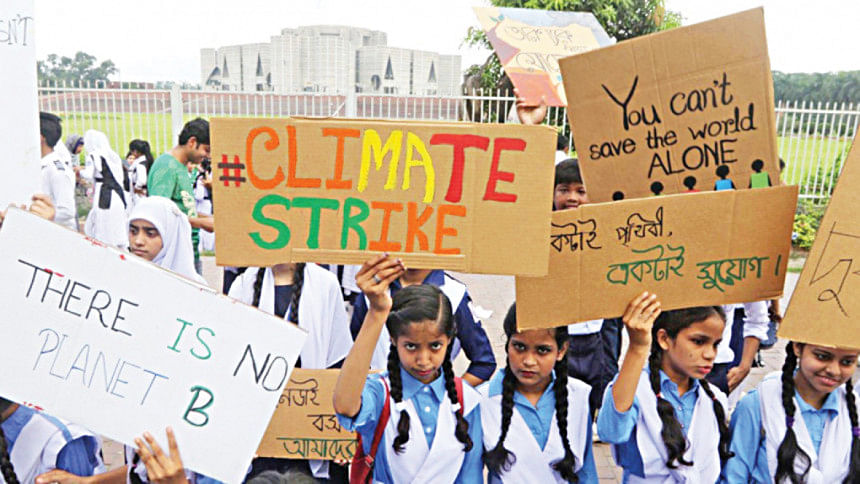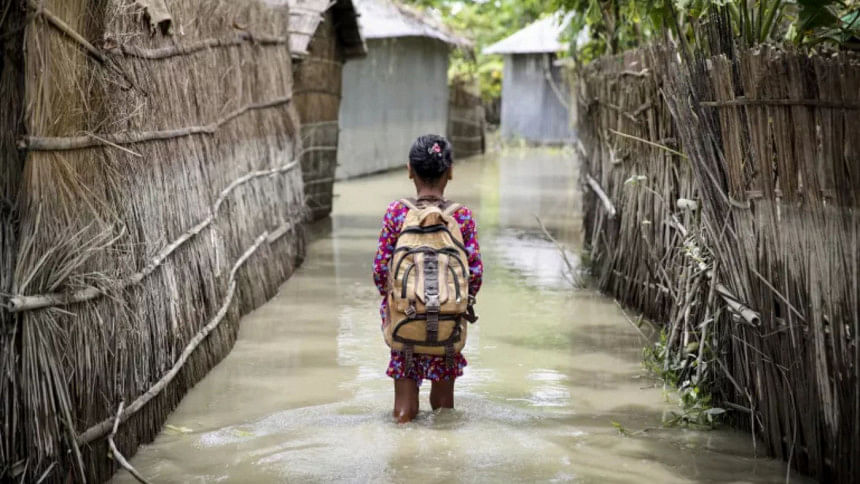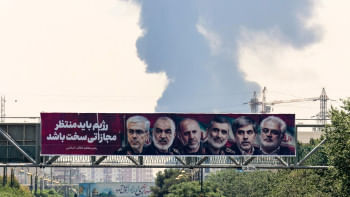Climate Crisis: 33m schoolchildren affected last year

Extreme weather events, fueled by climate change, disrupted the education of at least 247 million schoolchildren across 77 countries in 2024.
Children in Bangladesh were among the worst affected, with around 33 million facing multiple rounds of school closures.
This was revealed in a first of its kind Unicef report, released yesterday, titled "Learning Interrupted: Global Snapshot of Climate-Related School Disruptions in 2024". According to the report, South Asia was the most affected region.

In Bangladesh, schools were closed countrywide for around two weeks between April and May in 2024 due to nationwide heatwaves that left children at risk of dehydration and heat strokes. Subsequent disruptions happened in several districts later due to cyclone Remal, followed by intense flooding in June, which affected around 18.4 million people in the country, including 7 million children.
Sylhet was the worst-hit district, with more than 6,00,000 learners left without access to education for up to eight weeks, according to Unicef.
Khulna, Chattogram and Rangpur districts also suffered around six weeks of climate-induced school closures in 2024.
"The increasing frequency and intensity of extreme weather events is having a knock-on effect on children's education," said Rana Flowers, Unicef representative to Bangladesh.
"Extreme temperatures and other climate hazards don't only damage schools, they affect students' concentration, memory, and mental and physical health. Prolonged school closures increase the chance of children dropping out and being married off by families to cope with economic stress," he added.
Girl children are mostly impacted, with many of them married off instead of being supported to continue education. Bangladesh ranks among the top 10 countries in the world with the highest percentage of child marriage.
Children in Bangladesh are among the most exposed and vulnerable to climate and environmental hazards according to the Unicef Children's Climate Risk Index. These disasters often exacerbate the country's "learning poverty", where one in two children cannot read at their grade level and two-thirds are unable to do basic counting after completing primary education.
Moreover, some of the brightest children have to give up on their education due to the numerous climate induced disasters.
The report noted that schools and education systems in Bangladesh are largely ill-equipped to protect students from these impacts, while financial investments in education centring climate events remain alarmingly low.
Unicef called on international climate financing institutions and donors, the private sector and the interim government to engage in policy-making and planning in this regard, prioritising the needs of children.
Several recommendations were made including accelerating financing to improve climate resilience in the education sector, ensuring children are engaged in climate decision-making, ensuring proper national climate plans -- including Nationally Determined Contribution 3.0 and the National Adaptation Plan -- strengthening child-critical social services like education to be more climate-smart and disaster-resilient.
"Children in Bangladesh are at the forefront of two interconnected crises -- climate change and deepening learning poverty that threatens their survival and future. As children continue to speak up and call for urgent action on the devastating impacts of the climate crisis, decision-makers must heed their calls and place their needs at the centre of climate policies and financing plans," said Flowers.

 For all latest news, follow The Daily Star's Google News channel.
For all latest news, follow The Daily Star's Google News channel. 



Comments